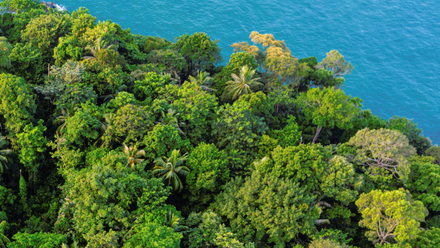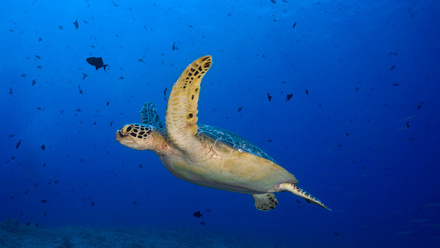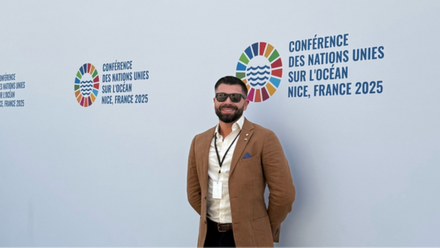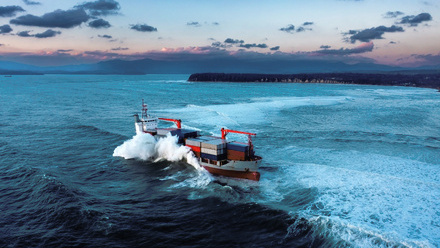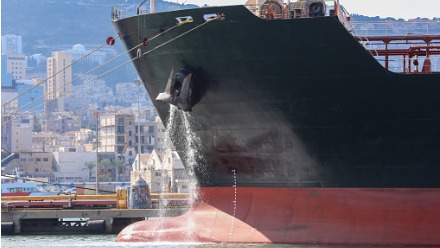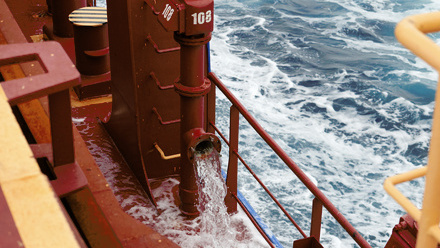Helping to create the ocean we all need
IMarEST’s Marine Mammal Special Interest Group (MMSIG) members reviewed six white papers that will help drive the United Nations’ Ocean Decade moving forward and solve 10 key challenges.
Ocean Decade is an ambitious initiative to advance our understanding of the ocean and promote sustainable practices. Efforts are focused on seven outcomes by 2030. These include a clean, healthy, resilient, and productive ocean. Underpinning these outcomes are ten challenges that, if met, will take us closer to, “the ocean we want”.
In early 2024, the global ocean community, including MMSIG, reviewed white papers outlining user needs, priority datasets and knowledge gaps, and strategic measures to meet each challenge. “Our contributions will directly influence the revision of these documents,” says Niru Dorrian, co-chair of MMSIG, an offshore ecologist and marine mammal specialist, and CSci, CMarSci and IMarEST Fellow.
In addition to coordinating MMSIG’s efforts for this task, Dorrian reviewed the white paper for Challenge 1 (understand and beat marine pollution), which offers a framework detailing key pollutants, regions, and methods for effective pollution monitoring, and Challenge 9 (skills, knowledge and technology for all), which highlights the importance of technology transfer, collaborative projects, and partnerships to facilitate knowledge exchange and capacity building between regions with varying resources.
“These are critical topics relevant to marine mammal conservation and health, as well as advancing technologies and the accessibility and standardisation of approaches globally to protect marine fauna,” says Dorrian.
Addressing common impacts
MMSIG Fellow Patrick Lyne (CSci, CMarSci), a consultant marine scientist with extensive experience working with marine mammals reviewed the white paper for Challenge 3 (sustainably feed the global population). “This [challenge] reflects on fishing and aquaculture and how to ensure it is sustainable,” says Lyne.
“The ocean feeds approximately three billion people today, and we will require it possibly to feed more people in the future. However, much of what we do is damaging to the marine environment, and we are putting severe pressure on fish stocks such that if we continue, we will have to find an alternate source of food to replace the marine food capacity.”
Lyne notes that this challenge may not seem important to MMSIG, but there is overlap. “Many of us work on the impact of noise on marine mammals. However, fish can also be potentially considerably impacted by noise,” Lyne explains. For example, male fish such as cod and haddock use calls to attract mates. “These low-frequency sounds can be drowned out by man-made sounds, which can be associated with piling or shipping,” Lyne says, adding that there are other common issues to consider.
Representation at the highest level
MMSIG member Ashleigh Kitchiner, a marine mammal specialist and RMarSci, reviewed the white papers for Challenge 2 (protect and restore ecosystems and biodiversity) and Challenge 8 (create a digital representation of the ocean).
“Challenge 2 aims to advance ecosystem-based management approaches by utilising timely and accurate information to encourage sustainable development, particularly in conserving and restoring ecosystems and biodiversity. Challenge 8 endeavours to establish a dynamic digital portrayal of the ocean, enhancing decision-making processes and promoting sustainable ocean management,” Kitchiner explains. “It was important to review these papers because they offer valuable insights into how marine mammal conservation intersects with broader ocean sustainability efforts.”
Equally, Kitchiner aimed to: “Ensure that the perspectives and concerns of marine mammal conservation were considered in the broader context of ocean science and policymaking.”
A collaborative approach
As active members of MMSIG, the collaborative approach of Ocean Decade’s Vision 2030 process is familiar to Dorrian, Lyne, and Kitchiner. “By providing a global platform for stakeholder participation, the United Nations has encouraged collective advancement towards implementing the Ocean Decade challenges,” says Dorrian.
“The efforts over the coming years promise to be instrumental for conservation and exploring innovative solutions for ocean conservation,” concludes Kitchiner. “Engaging diverse stakeholders and leveraging their expertise and perspectives is important when considering the success of initiatives.”
Help create a new approach to marine mammal conservation and management by joining MMSIG.
Image: Niru Dorrian, co-chair of MMSIG; credit: Niru Dorrian.

